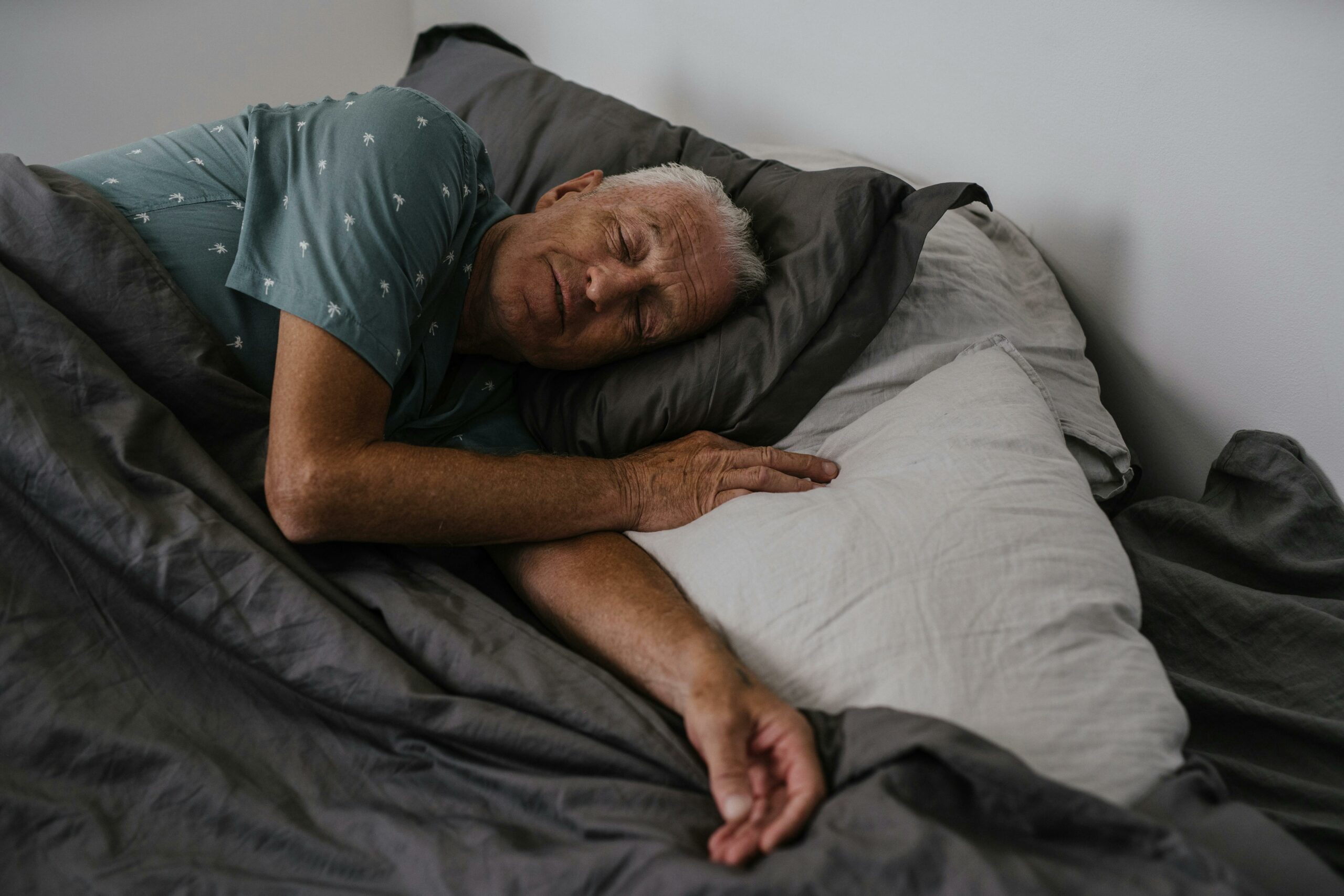As we age, our bodies undergo numerous changes, and one of the most critical yet often overlooked aspects of healthy aging is quality sleep. While many older adults experience sleep disturbances, insomnia, or frequent awakenings, the importance of restorative sleep cannot be overstated.
Getting enough sleep is essential for physical health, cognitive function, emotional well-being, and overall quality of life. Let’s explore why sleep matters as we age and how to improve it for better health and vitality.
😴 Why Sleep is Important for Healthy Aging
1. Boosts Cognitive Function
Adequate sleep is essential for memory consolidation, focus, and mental clarity. Poor sleep increases the risk of cognitive decline, dementia, and Alzheimer’s disease in older adults. Deep sleep helps the brain clear toxins that accumulate during waking hours, supporting long-term brain health.
2. Supports Physical Health
During sleep, the body undergoes repair and rejuvenation. Quality sleep helps:
- Strengthen the immune system to fight infections.
- Repair tissues and muscles, especially important after physical activity.
- Regulate hormones like cortisol (stress hormone) and insulin (blood sugar control).
3. Promotes Heart Health
Poor sleep is linked to an increased risk of high blood pressure, heart disease, and stroke. Quality sleep helps regulate blood pressure and reduce inflammation, both crucial for maintaining a healthy heart as we age.
4. Maintains Healthy Weight
Sleep plays a key role in regulating hunger hormones (ghrelin and leptin). Poor sleep can lead to increased appetite, cravings for sugary foods, and weight gain—factors that can contribute to diabetes, joint problems, and other health issues in older age.
5. Enhances Mood and Mental Well-Being
Lack of sleep is closely linked to mood swings, anxiety, and depression. Getting enough rest helps regulate emotions, reduce stress, and improve overall mental well-being, which is especially important for older adults facing life transitions and challenges.
💤 How Much Sleep Do Older Adults Need?
Most older adults need between 7-9 hours of sleep per night. However, it’s not just the duration but also the quality of sleep that matters. Deep sleep and REM sleep are essential for physical and cognitive health.
🔄 Common Sleep Challenges in Older Age
Many older adults face sleep challenges, including:
- Insomnia – Difficulty falling or staying asleep.
- Frequent awakenings – Often due to pain, medications, or bathroom needs.
- Sleep apnea – A condition where breathing repeatedly stops and starts during sleep.
- Restless leg syndrome – Uncomfortable sensations in the legs that disrupt sleep.
🛏️ Tips to Improve Sleep as You Age
1. Create a Consistent Sleep Schedule
Go to bed and wake up at the same time every day—even on weekends. Consistency helps regulate your body’s internal clock and improves sleep quality over time.
2. Limit Screen Time Before Bed
The blue light from phones, tablets, and TVs can disrupt the production of melatonin, the hormone that regulates sleep. Aim to turn off screens at least 1 hour before bedtime.
3. Make Your Bedroom Sleep-Friendly
- Keep it cool and dark – Ideal temperature is around 65°F (18°C).
- Use blackout curtains or an eye mask.
- Invest in a comfortable mattress and pillows that support your body.
- Limit noise with earplugs or a white noise machine.
4. Be Mindful of Your Diet
- Avoid heavy meals, caffeine, and alcohol close to bedtime.
- Eat a light, balanced dinner with complex carbs, healthy fats, and protein.
- Consider a small bedtime snack like a banana or yogurt if hunger keeps you awake.
5. Stay Active During the Day
Regular exercise, even light activities like walking, yoga, or stretching, can improve sleep quality. Just avoid vigorous exercise 2-3 hours before bedtime.
6. Manage Stress and Anxiety
Try relaxation techniques like deep breathing, meditation, or gentle yoga before bed. Journaling your thoughts or creating a to-do list for the next day can also help clear your mind.
7. Limit Naps
While naps can be beneficial, limit them to 20-30 minutes in the early afternoon to avoid disrupting your nighttime sleep.
8. Limit Liquids Before Bed
Reduce fluid intake in the evening to minimize nighttime trips to the bathroom, which can disrupt sleep.
9. Review Your Medications
Some medications can interfere with sleep. Talk to your doctor about your medications if you’re experiencing sleep problems—they may adjust your dosage or timing.
10. Consider Natural Sleep Aids
- Melatonin supplements can help regulate your sleep cycle.
- Herbal teas like chamomile, lavender, or valerian root promote relaxation.
- Magnesium supplements can improve sleep quality and reduce muscle cramps.
(Always consult your doctor before starting any new supplements!)
🚨 When to Seek Help
If you consistently struggle with sleep despite trying these tips, consider consulting a sleep specialist. Sleep disorders like sleep apnea or chronic insomnia often require professional treatment.
🧠 Final Thoughts:
Quality sleep is a pillar of healthy aging, influencing everything from cognitive function and heart health to mood and weight management. By making sleep a priority and adopting healthy habits, older adults can enjoy better health, more energy, and improved quality of life.
✨ Remember: Good sleep isn’t a luxury—it’s essential for aging well!
Photo by SHVETS production: https://www.pexels.com/photo/an-elderly-man-sleeping-on-the-bed-8899461/


